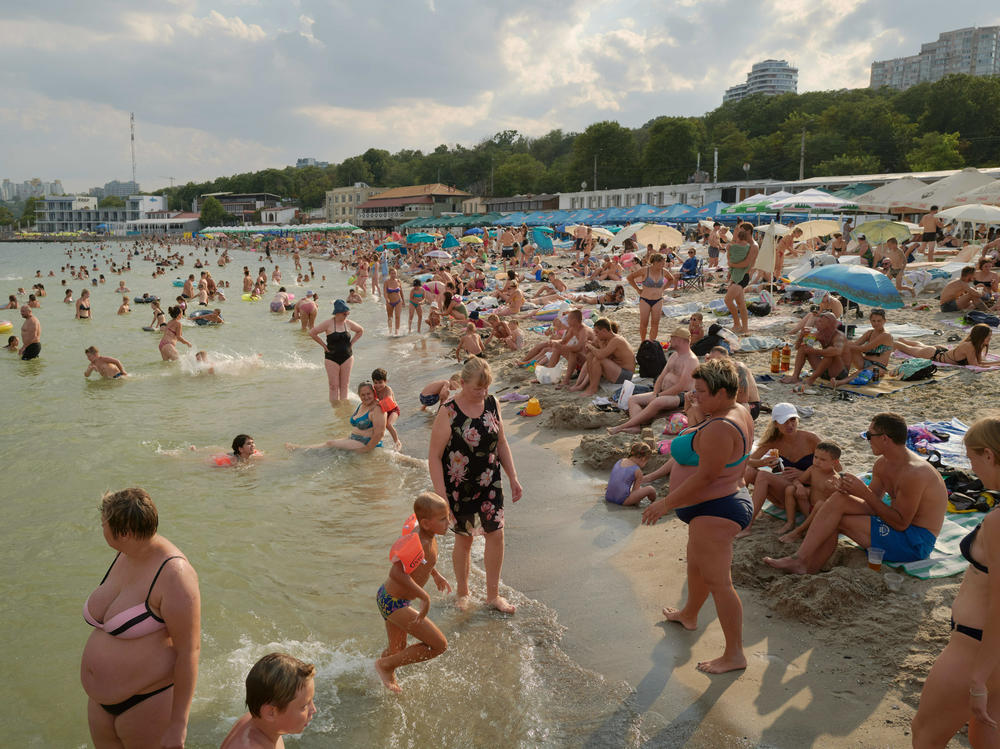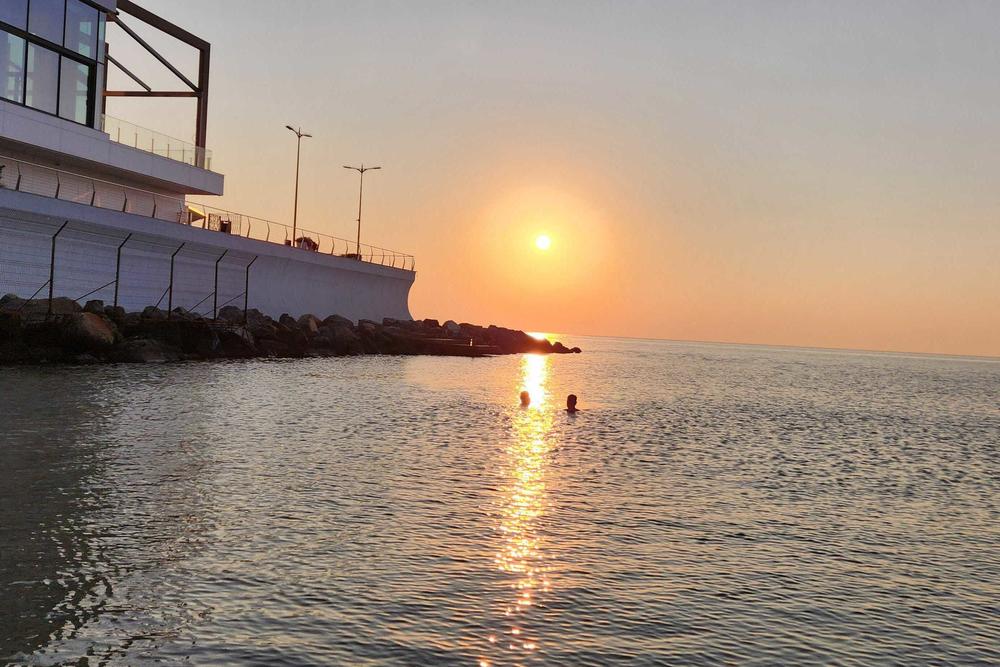Section Branding
Header Content
Odesa beaches reopen, offering Ukrainians a respite from war
Primary Content
ODESA, Ukraine — On a hot, late-summer afternoon, Tatiana Sapunshtyn came with her daughter Polina to wade and sunbathe on a city beach in Odesa in southern Ukraine.
"This is the summer to be a little bit relaxed when we have the kids," she said. "It's really important for everybody, for every family."
The chic beaches of Odesa, a short walk from glitzy hotels and shoreside restaurants, were once a draw for tourists from around the world — many of them from Russia. In peacetime, cosmopolitan crowds speaking a dozen different languages would swim here together.
Now this stretch of Black Sea coast is an active war zone, at the center of a global conflict over grain shipments. Russian ships and aircraft regularly fire missiles that strike Odesa.
When missiles and drone attacks first hit the city — and Russian naval vessels started laying explosive sea mines around the port — the beaches were closed. Warning signs urged people to keep their distance.
Even now, Sapunshtyn said she was wary of swimming out into the deeper water. They were only wading in the shallows.
"We don't swim longer because I think it's dangerous, actually, because [there are] a lot of bombs and nobody knows how it's moving in the sea," she said.
One of those Russian sea mines — what Sapunshtyn calls bombs, meant to impede grain shipments from Odesa's port — floated up on another public beach in early July. It was removed safely, without causing injury or damage.
On this day, local Odesans and tourists from other parts of Ukraine were braving the cool waters of the Black Sea, despite the risk.
Lovers bobbed in the glittering waves. Parents played with children. There was the sound of laughter and Ukrainian pop music.
This tension exists in much of Ukraine: People struggle to find a precarious balance between normal life and the deadly conflict that shows no sign of ending anytime soon.
"Everything could end," said Khrystyna Shkorpeio. "But on the beach ... I feel more relaxed, it's easier to cope."
She works in a café in Odesa and said her days are often disrupted by air raid alerts and missile strikes. Last winter was exhausting and cold, with constant power outages, and the coming winter promises to be equally hard.
So, she said, a day sunbathing with friends offers a respite from all that. "I'm really happy. It's for me like a first vacation."
Along the beach, there was a woman doing yoga and an elderly couple sitting close under a bright-blue umbrella.
Dmytro Chernenko, a lanky 19-year-old in swim trunks had come with his mother, both of them carrying beach towels.
"We came to swim as soon as we learned the beaches had reopened," he said. But Chernenko acknowledged the reality of war is never far away. He may himself wind up in the army soon.
He and others here say they have to keep living as well as they can, to prove to Russia — and to themselves — that this war won't wear them down.
Ukrainians say this kind of resilience, this ability to find joy and peace in the midst of war, will help keep their country in the fight as long as it takes.
Copyright 2023 NPR. To see more, visit https://www.npr.org.


